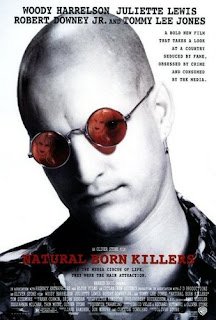FREE ON YOUTUBE Bob Rafelson - Five Easy Pieces
Try showing Five Easy Pieces at a video night with your girlfriends. This is how your evening will go; with explosive laughter, deep silence and stunned attention. Five Easy Pieces is a film of unusual depth and intensity and presents one of the most unusual characters in the history of cinema. Robert Eroica Dupea, whose name was inspired by Beethoven's symphony. He is embodied by Jack Nicholson, who shortly before became a film star through the New Hollywood movement (after a career of almost ten years in smaller films). Nicholson flourished during the early 70s, playing outsiders, capable of anger, sarcasm, self-pity, but also tenderness. And in Five Easy Pieces he is a revelation! Imagine experiencing such a great film in the cinema in 1970! That was exactly the direction in which the New Hollywood direction was developing! With idiosyncratic characters and dialogue with a sense of the vulgar & literary, with a plot driven by the development of the characters (and always surprising us!) and finally an existential ending. That's how New Hollywood works! In addition to Jack Nicholson, quirky supporting characters also appear, embodied by actors who were all newcomers. Director Bob Rafelson is considered one of the most creative minds of New Hollywood cinema and whoever the camera reminds of Easy Rider - both films were made by Laszlo Kovacs. Nothing is predictable in Five Easy Pieces. The screenplay allows itself deviations and excesses that never disturb but delight us every time. and how many moments went down in the collective memory of cinema? Who could fail to quote the famous Chicken Salad scene, called Geek? After all, the chicken salad scene let Jack Nicholson go from movie star to legend. His Deupea, by the way, is a voluntary outcast. A man who cannot return to his former life. However, he also has no way to move on. Somewhere he is stranded. Stranded between different jobs, ambitions, even social classes. He is a character that does not fit into the film. In no scene does he feel at ease with the people around him. Nowhere is he at home. Always Booby Deupea disappointed others or he didn't perform enough or he misbehaved. During the first half, Bobby works as an oil driller in California. He lives with waitress Rayette Dipesto (Karen Black), whose fear of losing him seems pathetic. At one point he learns from his crazy friend Elton (Billy "Green" Bush) that Rayette is pregnant. When Bobby wonders what he's even doing with crazy Elton in his living cheeks, we wonder how crazy Bobby actually is? Otherwise, we follow Rayette and Bobby and Elton in their blue collar world. At one point Bobby has sex with Betty (Sally Struthers), afraid of bonding with Rayette. But Betty, the ripper, isn't what he's looking for either. And at one point we can see Bobby playing the piano (the piano is on the loading ramp of a truck). He plays frantically, furiously, loudly. And at one point, when he meets his sister and learns that their father has had a stroke, the second half of Five Easy Pieces begins.... Bobby will go to the Washington coast, back to family. He meets Catherine, who asks him, "You have no love for yourself, no love for family, for friends--how can you ask for love?" It sounds like Fellini's 8 1/2, which is exactly the depth of Five Easy Pieces. It involves us in the life of Bobby and his friends. It implicates us in its time and place. We remember Rayette and Bobby because they are fully themselves. Needy, tightly driven and so brave in their loneliness! Once you've seen Five Easy Pieces, you'll find it hard to go back to the netflix agenda.



